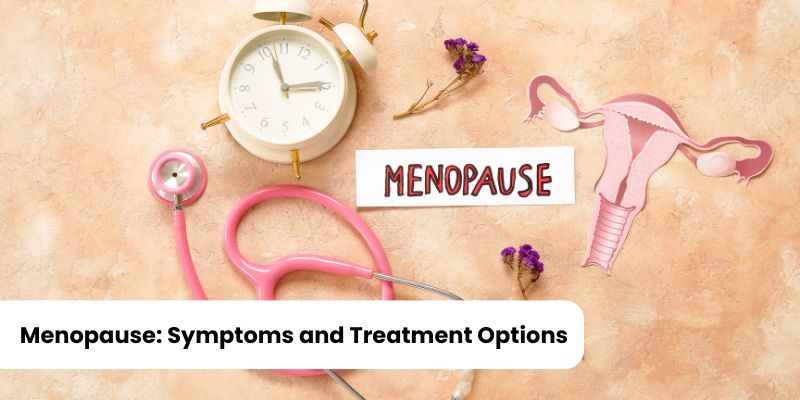



The girl had her first menstrual cycle when she turned 12 years old. A girl's menstrual cycle begins at this point. The menstrual cycle occurs between the ages of 40 and 50.
The Menopause is a phase when the menstrual cycle ends. The phase of menopause has various impacts on each woman's body.
Women may also gain weight quicker, as the body begins to use energy differently in fat cells. She might also have changes to her physical appearance, body composition, or bone or heart health.
After she has gone 12 months without a menstrual period, it is diagnosed. Although you can also be diagnosed with it in your 40s or 50s, the average age is 51 years. Menopause is a natural biological process that takes place in a woman’s body.
During perimenopause, which is the period preceding up to menopause, women might experience the following signs and symptoms.
• Unusual Periods
• Vaginal Dryness
• Warm Flashes
• Night Sweats or Shivers
• Sleep Problems
• Mood Changes
• Increasing Weight and Slowing Metabolism
• Reduced Breast Fullness, Thin Hair, and Dry Skin
Period skipping is normal during the perimenopause. Menstrual cycles sometimes skip a month and then return, or they might skip several months before beginning again for a few months.
In addition, periods usually happen on shorter cycles, indicating they are closer together. One can become pregnant even with irregular periods. Take a pregnancy test if you haven't had your period in a while but aren't sure if you've entered menopause.
Treatment Options For Menopause
The menopause is a natural process. As a result, many symptoms might eventually go away with time, but treatments are available to help you feel better if they are causing you trouble. Here are some menopause treatment options.
1. Hormone Replacement Therapy (HRT): Also known as Menopause Hormone Therapy, this medication contains hormones that are present in females.
When you go through menopause, your body stops producing estrogen, therefore doctors take medication to replace it. Hot flashes and vaginal pain are some of the common menopausal symptoms that are frequently treated with this medication.
2. Non-Hormonal Medications: These medications provide a different method of treating menopausal symptoms, especially for women who are unable to go through hormone replacement therapy (HRT) or who prefer not to.
Without the use of estrogen or progestin, this therapy can relieve menopausal symptoms like mood swings, hot flashes, and night sweats.
3. Vaginal Estrogen Therapy: This therapy reduces symptoms of vaginal dryness, irritation, and pain that occur frequently after menopause by applying a low-dose estrogen formulation directly to the vaginal tissues.
This procedure provides moisture and flexibility to the vaginal tissues by specifically replacing estrogen levels, which improves overall vaginal health and reduces discomfort during intercourse.
4. Change in Lifestyle: Women can avoid menopause symptoms by changing their lifestyles of living. To maintain overall health and control weight, prioritize a balanced diet that includes fruits, vegetables, healthy grains, and lean meats.
To enhance your mood, bone density, and cardiovascular health, try strength training, flexibility training, and aerobic activity. Additionally, there are techniques for stress relief such as deep breathing, yoga, meditation, and tai chi that can be used to enhance overall health and reduce stress.
5. Monitor Health regularly: It involves scheduling an appointment for regular check-ups with the doctor to assess various aspects of well-being. It involves keeping an eye on blood pressure, cholesterol, and bone density to identify any changes or new issues that might need to be treated.
Furthermore, it's essential to keep up with regular examinations for breast and cervical cancer, such as mammograms and pelvic exams, as recommended by doctors.
With the help of these safety precautions, individuals can take control of their health, identify emerging issues early, and collaborate with doctors to maintain optimal health and well-being.
Menopause is a period that marks the start of a new phase in a woman's life and the end of her menstrual cycle. Menopause is a normal process that starts in women when they reach their 40s or 50s. It may also cause symptoms that affect women's physical and mental wellness.
We, KD Blossom, have the best doctors for menopause problems who provide overall treatment for menopause. We have a team of the best gynecologists in Ahmedabad, who are experienced in dealing with menopause along with providing surgical care.